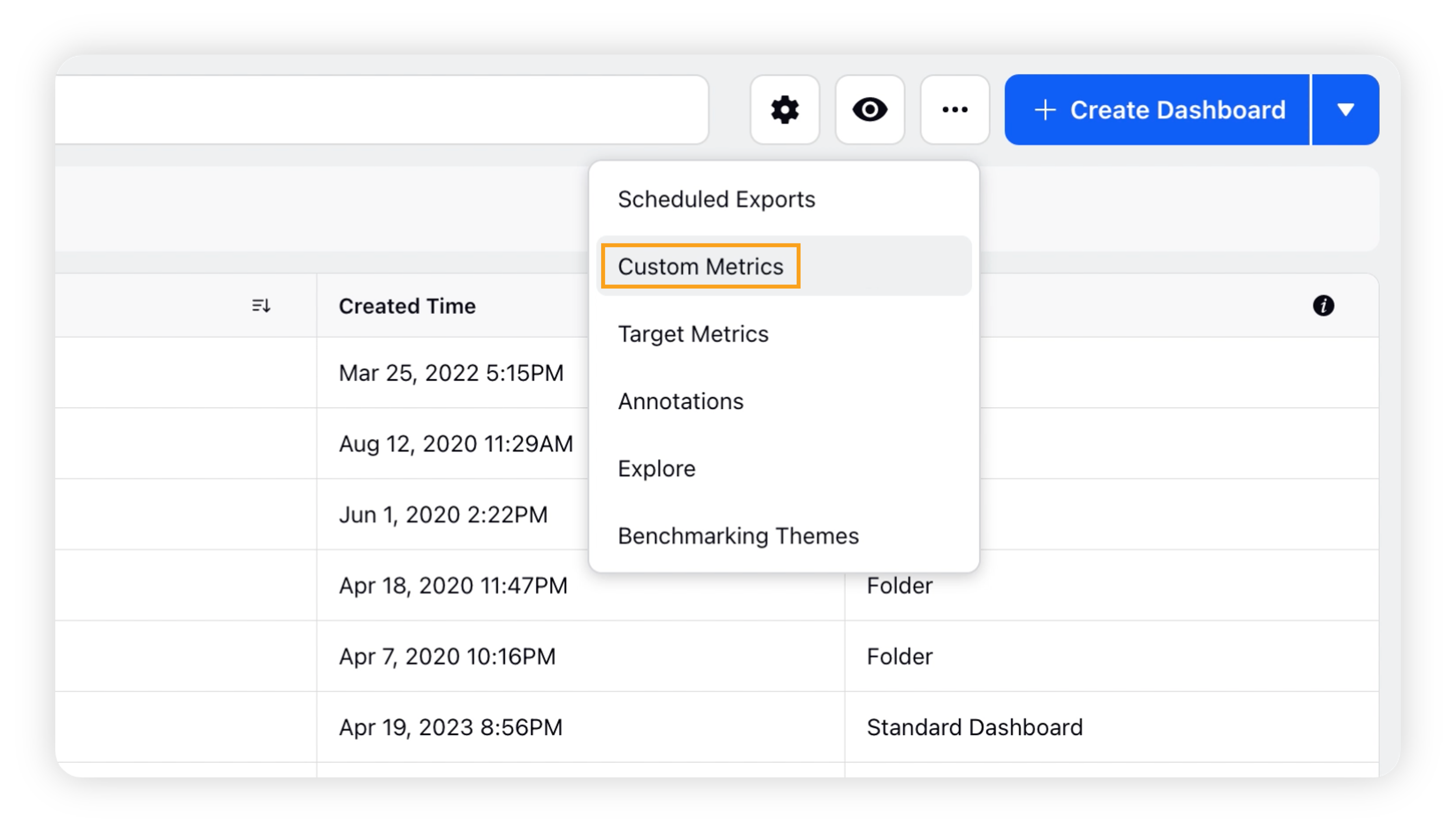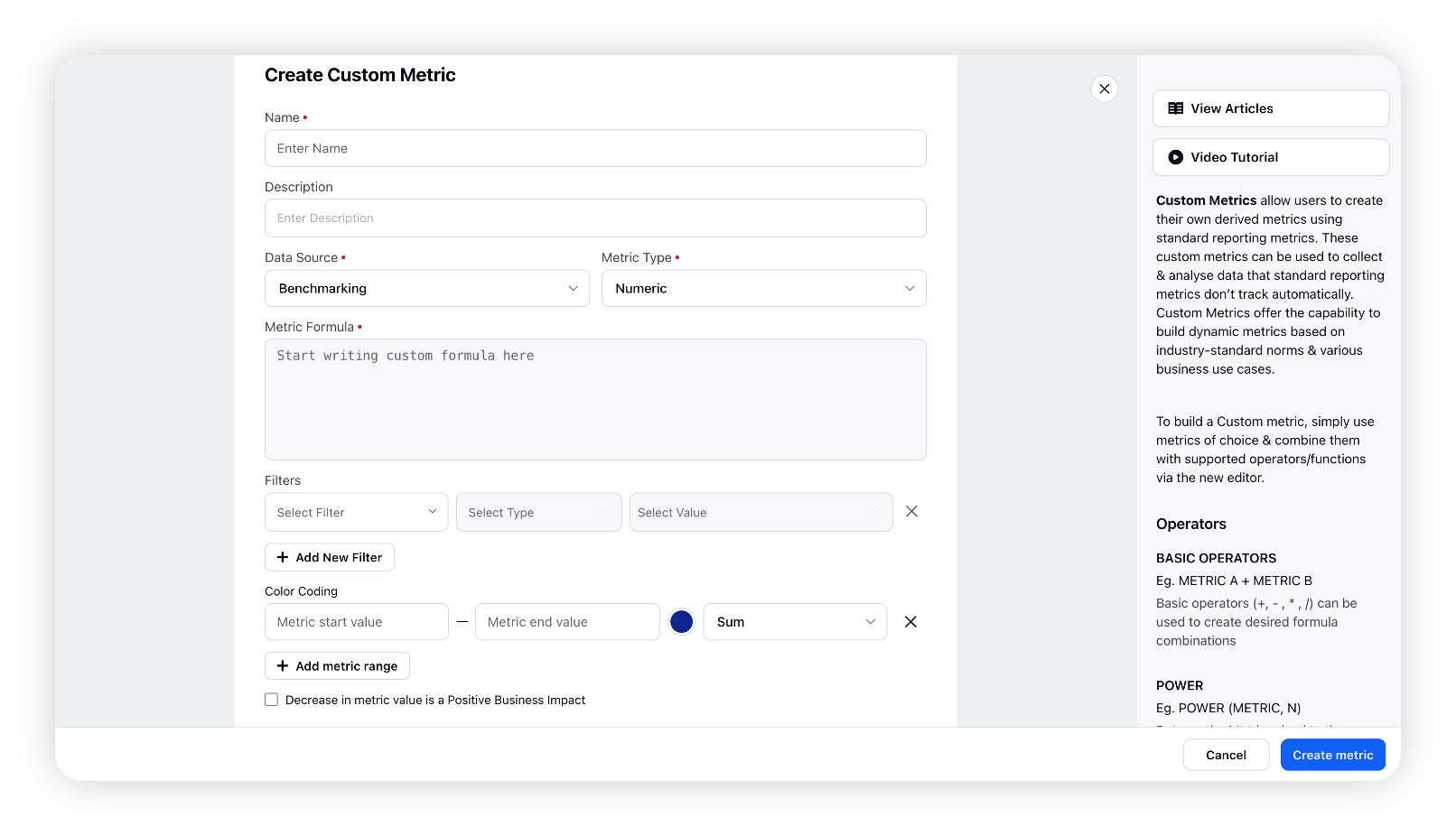Custom Metrics in Benchmarking
Updated
Custom Metrics allow you to create your own derived metrics using the standard reporting metrics. These custom metrics can be used to collect and analyze data that reporting does not track automatically. Custom metrics offer you to build dynamic metrics based on industry-standard norms and various business use cases.
To create custom metrics
Click the New Tab icon. Under Sprinklr Insights, click Benchmarking Dashboards within Learn.

On the Benchmarking Dashboards homepage, click the Settings icon and then click Custom Metrics.

On the Custom Metrics record manager, click the Add Custom Metric button in the top right corner.

On the Create Custom Metric form, fill in the details of the custom metric you are creating.

There are various fields to be filled in the form like –
Name: Enter a name for the metric
Description: Enter a description of the metric that you want to create (optional)
Data Source: Select the data source as benchmarking
Metric Type: Select the desired metric type. The metric type is the unit in which the data count gets reflected. You may select from the following metric types –
Numeric
Percentage
Currency
Date Time
Time Difference
Metric Formula: Select the metrics from the list You can select a numeric operator from the list and add another metric. You can create a custom metric from an existing custom metric. For example, if you have created a metric named Average Reach Per Post, where the metric is Post Reach/Volume of Published Messages, you can create another custom metric with Average reach per post as one of the metrics in the metric field.
Filters: Select dimensions, filter type, and values.
Operators available
Basic Operators
Syntax: +,-,/,*
Basic operators (+, -, *, /) can be used to create desired formula combinations
Power
Syntax: ^
Returns the Metric raised to the power of "N", where N can be any real number
Log
Syntax:
Returns the Logarithmic value of Metric. Note that the Base of the LOG function is 10.
LN
Syntax:
Returns the Natural Logarithmic value of Metric. Note that the Base of the LN function is "e".